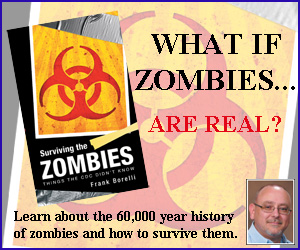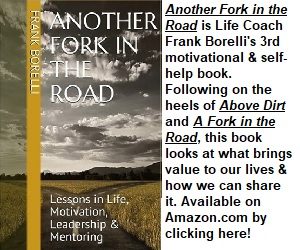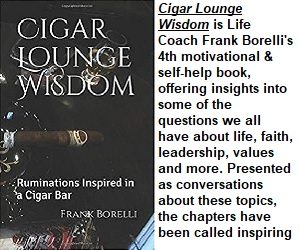Author’s Note: Republished almost 16 years after I originally wrote it. Still just as applicable today as it was then.
As I type this it’s Sunday afternoon, November 12, 2006. Two days ago, November 10th was the Marine Corps’ Birthday (231st). Happy Birthday Marines! I’m proud to have to call my older brothers on that day and wish them all a Happy Birthday since all four served as Marines and two even retired from the Corps. Yesterday, November 11th, was Veterans’ Day. To ALL who have served our nation in military uniform, THANK YOU for your service. I count myself both proud and honored to be one of you. Today – in just a few hours – my oldest son leaves. He’ll be traveling up to the Military Entrance Processing Station (MEPS) near Baltimore to spend the night at a hotel. Early tomorrow morning he’ll be up and processed and shipping out to… Marine Corps Boot Camp. Thirteen weeks of life altering experience and training that will certainly change him in many ways. When I consider what kind of man he’ll be at the other end, I have to consider what kind of child / man he is NOW to have made this choice and be moving into it with the level of confidence and assurance that he has.
 Such introspection, however, makes me wonder about our current generation of warriors in general. How did they become what they are? What are the motivations? Which are drawn to it and which are in the service because their other options were limited? It leads me to think about the entire generation following mine. I’m in my forties and entered the Army’s basic training in the early ’80s. I consider anyone under 25 “the next generation”. Obviously, as it applies to the warrior culture, under 25 has to have a bottom end of 17 since that’s the minimum age people can enlist provided they have their parents’ permission signature.
Such introspection, however, makes me wonder about our current generation of warriors in general. How did they become what they are? What are the motivations? Which are drawn to it and which are in the service because their other options were limited? It leads me to think about the entire generation following mine. I’m in my forties and entered the Army’s basic training in the early ’80s. I consider anyone under 25 “the next generation”. Obviously, as it applies to the warrior culture, under 25 has to have a bottom end of 17 since that’s the minimum age people can enlist provided they have their parents’ permission signature.
So, who are they and how did they get where they are as warriors or warriors-to-be? I think that begs the question, “What makes a warrior?”
According to www.dictionary.com
Warrior:
1. a person engaged or experienced in warfare; soldier.
2. a person who shows or has shown great vigor, courage, or aggressiveness.
Warfare:
1. the process of military struggle between two nations or groups of nations; war.
2. armed conflict between two massed enemies, armies, or the like.
3. conflict, esp. when vicious and unrelenting, between competitors, political rivals, etc.
 War:
War:
1. a conflict carried on by force of arms, as between nations or between parties within a nation; warfare, as by land, sea, or air.
2. a state or period of armed hostility or active military operations.
3. a contest carried on by force of arms, as in a series of battles or campaigns.
4. active hostility or contention; conflict; contest.
6. a struggle: a war for men’s minds; a war against poverty.
7. armed fighting, as a science, profession, activity, or art; methods or principles of waging armed conflict.
The definitions help us, at least a little bit, to understand that any warrior has to be a person unafraid of, or capable of performing in spite of their fear of, conflict. More often than not, in my experience, fear always exists. What differentiates warriors from non-warriors is that the warriors will face the fight even while afraid of it. Why?
Duty:
1. something that one is expected or required to do by moral or legal obligation.
2. the binding or obligatory force of something that is morally or legally right; moral or legal obligation.
3. an action or task required by a person’s position or occupation; function.
 “…moral… obligation.” “…something that is morally or legally right”
“…moral… obligation.” “…something that is morally or legally right”
Our contemporary warriors, whether they are law enforcement professionals or soldiers in our armed services perform their duty. That duty is to protect and defend our country. Our country is comprised of – according to the United States Census estimates as I type this – 300,193,038 residents and citizens. Those contemporary warriors CHOSE to enter into an occupation / career field that would require them to face aggressive and violent opponents to defend the weak, protect the innocent and keep the peace.
What makes a young man or woman feel obligated to enter into such an occupation? Drawn to it? Viewing it as desirable and the right thing to do?
From my own experience I know that an awful lot of parents simply don’t think their children – even at 18 or 19 years old – are capable of making a reasonable decision about entering (or not) military service. I believe that in some circumstances the parents are simply afraid that the children will “go off to war and never come home.” Those are exactly the words of my ex-wife when she talked to me (briefly) about how she felt about our son going into the Marine Corps.
Something I don’t think she’ll ever understand – or even want to – is that the idea of my son laying down his life fighting for our country is not the worst thing that can happen. To me, the fact that he’s willing to stand up and fight means he’ll never be anyone’s willing victim. And even better, as a Marine, he’ll be willing to stand and fight to defend those too weak or pacifistic to defend themselves. To me, if he was willing to be a doormat… NOT defend himself… NOT defend others… NOT stand up for what’s right; THAT would be worse than him dying in combat. To my ex-wife, the loss of his life is unthinkable and undesirable no matter what.
 So, we have young men and women who enter into contemporary warrior fields out of a sense of duty. Why else might they? Sometimes it’s simply that they have no other options. When I enlisted in the Army my father was deeply disappointed. I didn’t get that. He had served in the Air Force during the Korean War; his father had earned his United States citizenship by serving in the United States Army during World War I. I thought my father would be proud. He saw things slightly different. He saw an intelligent healthy kid with decent grades and two potential college scholarships “throwing it all away” to go become a Military Policeman. All of the potential HE saw was “being wasted”. He measured what I was doing against what he thought I COULD be doing that he viewed as making my life better. I saw what I was doing as measured against what so many of my friends were doing… which was either nothing or worse – some people I grew up with were selling drugs or stealing with no positive future on the horizon. There were so many things I thought that I COULD be doing bad that I thought he should be proud of me for doing something GOOD.
So, we have young men and women who enter into contemporary warrior fields out of a sense of duty. Why else might they? Sometimes it’s simply that they have no other options. When I enlisted in the Army my father was deeply disappointed. I didn’t get that. He had served in the Air Force during the Korean War; his father had earned his United States citizenship by serving in the United States Army during World War I. I thought my father would be proud. He saw things slightly different. He saw an intelligent healthy kid with decent grades and two potential college scholarships “throwing it all away” to go become a Military Policeman. All of the potential HE saw was “being wasted”. He measured what I was doing against what he thought I COULD be doing that he viewed as making my life better. I saw what I was doing as measured against what so many of my friends were doing… which was either nothing or worse – some people I grew up with were selling drugs or stealing with no positive future on the horizon. There were so many things I thought that I COULD be doing bad that I thought he should be proud of me for doing something GOOD.
But let’s look at those drug dealers and thieves. Some of the thieves get caught committing petty theft and don’t have any viable option for making an honest living. How many of them choose to go into the service? Maybe not many, but some. It’s there only hope for not ending up in prison sometimes.
How about others? How about the kids who graduate from high school but aren’t the sharpest tool in the shed? John Kerry got in trouble not long ago for saying what amounted to, “if you’re stupid you end up in Iraq.” While I completely disagree with him, I also know for sure and certain that there are some people who graduate from high school who simply don’t have enough on the ball to stand up and be independent. Some of them don’t have a lot of common sense. Some of them face challenges in their innate intelligence levels and need on-going guidance in their day to day existence. The military offers that without making them outcasts and without making fun of them. Some of these people – who may not be smart enough to close the front door behind them when they leave the house – excel in the service and become the best soldiers we ever see.
Let’s come at this from a different angle, speaking of best soldiers: what does it take to be a good contemporary warrior?
 Contrary to what some liberals would lead you to believe, it’s not all about guns and killing and unnecessary loss of life. If it was, the next generation of warriors would be the best we’ve ever seen. As LtCol Dave Grossman points out, the coming generation of warriors has the best training available we’ve ever seen – and it’s available at home, in the arcade, etc.
Contrary to what some liberals would lead you to believe, it’s not all about guns and killing and unnecessary loss of life. If it was, the next generation of warriors would be the best we’ve ever seen. As LtCol Dave Grossman points out, the coming generation of warriors has the best training available we’ve ever seen – and it’s available at home, in the arcade, etc.
If you take a look at the video games today you can find an entire group that teach some interesting martial skills:
1) Shooting. Extra points for head shots. Reload skills aren’t realistic, but sight-alignment, sight-picture and trigger press are repeated sometimes hundreds of thousands of time each month.
2) Tactics / Planning: Some of the games have the players select weapons for their team dependent on the mission, number of enemy, operational environment, etc.
3) Quick decisions: If you snooze you lose. If decisions have to be made, you’d better make them quick.
But for all these skills – ingrained better than we can get them into most LE personnel or soldiers in my generation – do the skills alone make them warriors? No. I’ve seen a great many children who excelled at video games but can’t control their fear of the dark to function. Some make great decisions in video games but can’t drive a car because of the stress and potential danger attached to making mistakes.
So, where does the courage come from? It’s learned.
Courage:
the quality of mind or spirit that enables a person to face difficulty, danger, pain, etc., without fear; bravery.
 Now, to be honest, some people just seem to spontaneously become courageous when no one expects it – usually, least of all, themselves. But courage is something that can be learned by observation, tutoring and coaching. Fathers and mothers can teach their children to be courageous. They have to teach them what is of value, and what’s not. They have to teach them what’s worth standing up for; worth fighting for; that fighting sometimes is okay if it’s for the right reason(s). In any warrior generation I would think that you can view the generation before and see a progression. I’ll use my own family as an example:
Now, to be honest, some people just seem to spontaneously become courageous when no one expects it – usually, least of all, themselves. But courage is something that can be learned by observation, tutoring and coaching. Fathers and mothers can teach their children to be courageous. They have to teach them what is of value, and what’s not. They have to teach them what’s worth standing up for; worth fighting for; that fighting sometimes is okay if it’s for the right reason(s). In any warrior generation I would think that you can view the generation before and see a progression. I’ll use my own family as an example:
I’m actually a unique case because I was adopted.
My paternal grandfather: US Army
My father: US Air Force
Me: US Army
My son: US Marine Corps (when he completes boot camp)
I was adopted and not that long ago found my original family:
Four older brothers: All Marines.
THAT kind of family history, and the pride with which we all discuss our service, teaches my children – and my nieces and nephews – that serving your country is something to be proud of; it’s something to be honored and cherished. It’s something not everyone is capable of. OUR family has always been capable. I’m not bragging… but some people DO have the courage and the sense of duty to do it. Some don’t.
 The reality is that between the television, radio, internet, etc., our children today can get a fairly regular message that violence of any form is wrong; that it’s better to be a peaceful victim than a violent defender; that the ultimate wrong is being violent no matter what the situation. To counter the media and other external onslaught of inputs, we have to aggressively educate our children otherwise:
The reality is that between the television, radio, internet, etc., our children today can get a fairly regular message that violence of any form is wrong; that it’s better to be a peaceful victim than a violent defender; that the ultimate wrong is being violent no matter what the situation. To counter the media and other external onslaught of inputs, we have to aggressively educate our children otherwise:
– Violence isn’t always wrong. It can be justified and necessary.
– Being a peaceful victim is never an acceptable option.
– The ultimate wrong is NOT fighting for what’s right, but surrendering to someone else’s wrong.
That kind of teaching instills our youth with at least the foundation necessary for them to make a decision: do I want to do what’s right and fight if necessary? Or do I want to be a pacifist and potential victim who can’t defend myself much less anyone else?
I know what my choice has always been and will be. I know what my oldest son chose. I know what my father, grandfather, four older brothers and best friend chose. Whether or not my youngest son goes into the service is academic. He’s already proven that he won’t be a willing victim and is willing to overcome his fears to fight for what’s right when it’s necessary.
What’s your choice? What will the choice of your children be? If you’re not sure, I submit to you that you need to start teaching and coaching quick…
BE SAFE!
